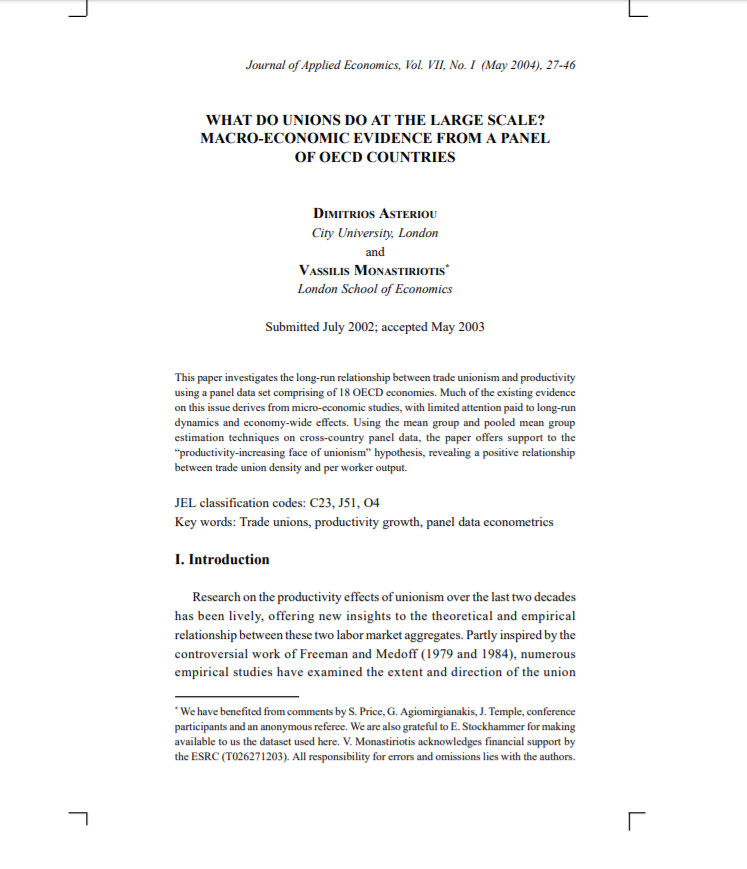Abstract
If the presence of a union in a workplace or firm raises the pay level, unless productivity rises correspondingly, financial performance is likely to be worse. If the product market is uncompetitive this might imply a simple transfer from capital to labour with no efficiency effects, but is probably more likely to lead to lower investment rates and economic senescence. Therefore the impact of unions on productivity, financial performance and investment is extremely important. This paper distils evidence on such effects from six countries: USA, Canada, UK, Germany, Japan and Australia. It is not possible to use theory to predict unambiguously any union effect on productivity because unions can both enhance and detract from the productivity performance of the workplace or firm. The evidence indicates that, in the USA, workplaces with both high performance work systems and union recognition have higher labour productivity than other workplaces. In the UK previous negative links between unions and labour productivity have been eroded by greater competition and more emphasis on ”partnership” in industrial relations but there is a lingering negative effect of multi-unionism, just as there is in Australia. In Germany the weight of the evidence suggests that the information, consultation and voice role of works councils enhances labour productivity particularly in larger firms. In Japan unions also tend to raise labour productivity via the longer job tenures in union workplaces which makes it more attractive to invest in human capital and through the unpaid personnel manager role played by full-time enterprise union officials in the workplace. Unions will reduce profits if they raise pay and/or lower productivity. The evidence is pretty clear cut: the bulk of studies show that profits or financial performance is inferior in unionised workplaces, firms and sectors than in their non-union counterparts. But the world may be changing. A recent study of small USA entrepreneurial firms found a positive association between unions and profits and in the UK the outlawing of the closed shop, coupled with a lower incidence of multi-unionism has contributed to greater union-management cooperation such that recent studies find no association between unions and profits. North American and German evidence suggests that unionisation reduces investment by around one fifth compared with the investment rate in a non-union workplace. In both Canada and the USA this effect is even felt at low levels of unionisation. The UK evidence is mixed: the most thorough study also finds that union recognition depresses investment, but this adverse effect is offset as density rises. The exception is Japan where union recognition goes hand-in-hand with greater capital intensity.
For the original source, please click here.



